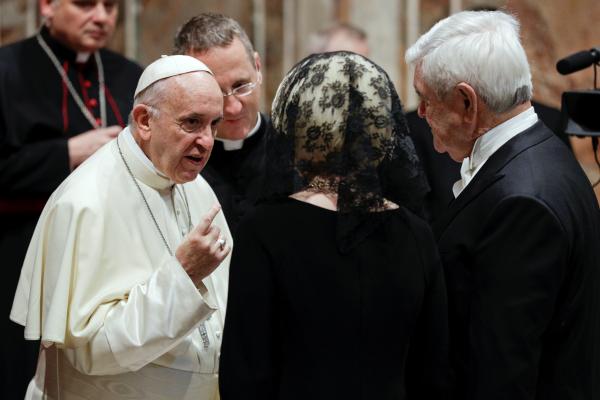Jan 8, 2018
"Nuclear weapons must be banned," Francis said, quoting a document issued by Pope John XXIII at the height of the Cold War and adding that there is "no denying that the conflagration could be started by some chance and unforeseen circumstance".
Read the Full Article

Already a subscriber? Login
